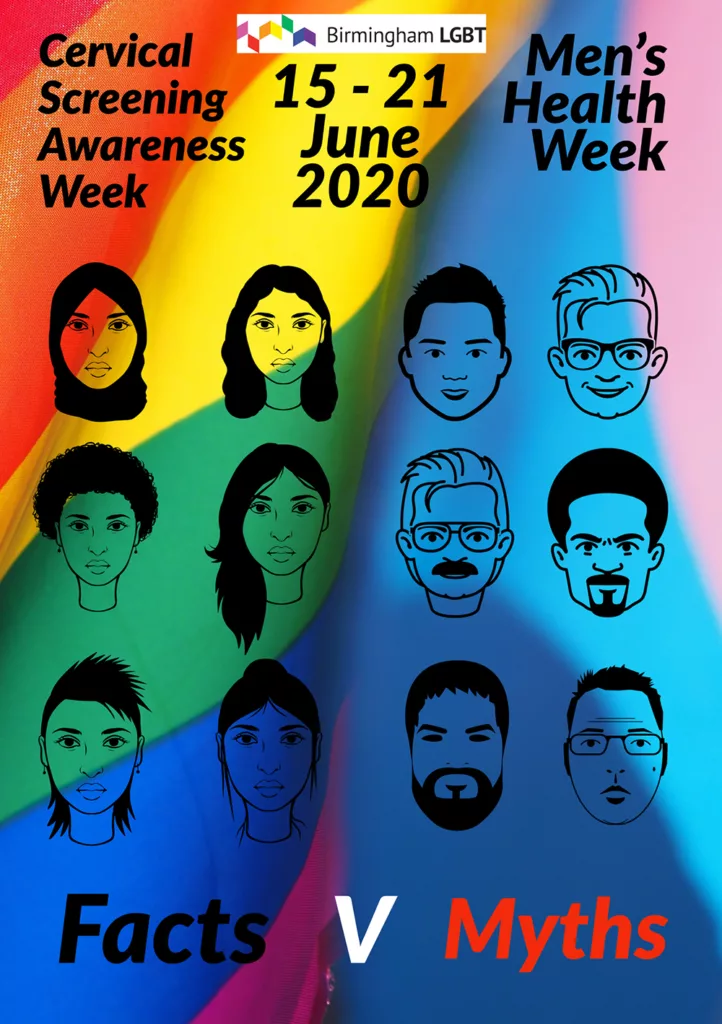Monkeypox: July 2022
Key facts – There have been a number of confirmed cases of monkeypox in the UK. Although monkeypox can affect anyone, the majority of those cases are among gay and bisexual men. – Monkeypox is transmitted through close contact, so is likely being passed on during sex rather than sexual transmission. – Everyone is being […]
Men’s Health Week 2020 – Facts v Myths

The impact of Covid-19 on the LGBT community
Birmingham LGBT is working with Birmingham City Council on a campaign to support LGBT community members who have been impacted by Covid-19 and the social distancing measures in place. In order to do this, we need fully to understand the impact the virus has had on the LGBT community. Many members of LGBT communities in […]